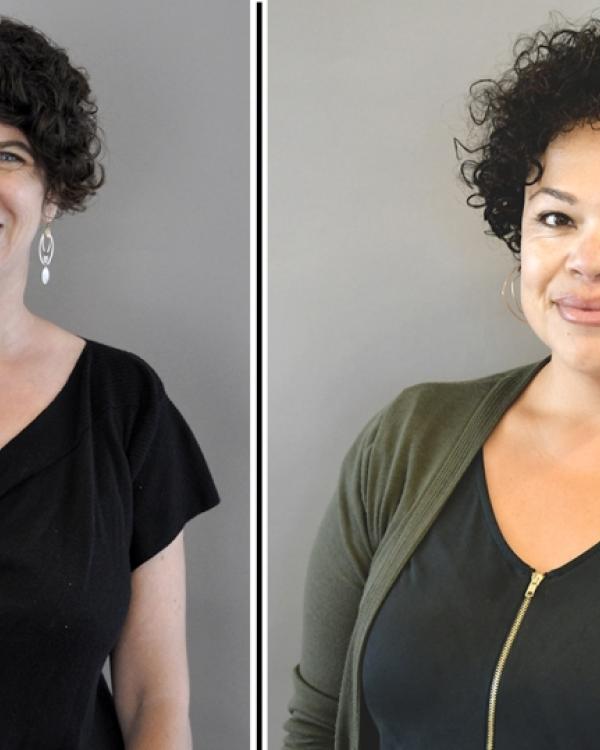
Miya Barnett and Alison Cerezo
Miya Barnett and Alison Cerezo, Assistant Professors in the Department of Counseling, Clinical, and School Psychology at UC Santa Barbara’s Gevirtz School, were awarded Hellman Fellowships. The Hellman Fellows Program provides grants that substantially support the research of promising junior faculty who show capacity for great distinction in their field.
Dr. Barnett’s research focuses on improving the effectiveness of Parent-Child Interaction Therapy (PCIT), an evidence-based treatment for young children with disruptive behaviors and parents at risk for maltreatment. Her study, “Interpersonal Autonomic Physiology in Parent-Child Interaction Therapy,” will be conducted in the PCIT Clinic, which she directs. Dr. Barnett seeks to understand the psychophysiological mechanisms of change in PCIT and to evaluate how the intervention affects bio-behavioral synchrony (the coordination of biological and behavioral patterns between parent and child). The study aims to (a) establish the feasibility and utility of capturing parent-child physiological data as a treatment outcome measure, (b) investigate whether synchrony predicts behavioral and emotional outcomes in PCIT, and (c) evaluate changes to synchrony over the course of treatment and whether the changes are sustained 6 months after treatment.
Dr. Barnett is an Assistant Professor of Clinical Psychology. She also runs the Promoting Access through Dissemination/Implementation Research on Evidence-Based Services (PADRES) Lab. Her research focuses on how implementation science can address mental health disparities for ethnic minority children and families. In particular, she focuses on how Lay Health Workers (LHWs) can be mobilized to increase access to evidence-based practices for underserved communities. She received a Mentored Research Scientist Career Development Award from NIMH to investigate how LHWs can increase engagement in PCIT for Latinx immigrant families. She serves as the chair of the Advocacy and Policy Taskforce for PCIT International, which focuses on how to address barriers to implementation in community settings.
Dr. Cerezo was awarded a grant for her project, “Tracking the Impact of Daily Stressful Events on Mental Distress, Alcohol and Tobacco Use in Sexual Minority Women.” This study explores (a) whether daily stressful events drive mental distress and alcohol and tobacco use, (b) whether these daily stressful events vary by type, frequency, and severity across gender, and (c) the types of health information related to COVID-19 that participants report learning from their sexual minority community. Results from Dr. Cerezo’s study have the potential to inform clinical interventions that would reduce health disparities for sexual minorities.
Dr. Cerezo is an Assistant Professor of Counseling Psychology. She has conducted research on sexual and gender diverse communities in the U.S. and Mexico. She uses qualitative, quantitative, and mixed methodologies, and her scholarly work is rooted in an intersectional and critical race theory perspective—always cognizant of the ways systems of power impact health outcomes and can thus be changed to better serve underserved communities. Her research primarily centers on reducing social and health disparities for sexual and gender diverse communities. Most recently, her work has focused on the links between stigma, discrimination, and alcohol misuse and alcohol risk behaviors in sexual minority women. She is also interested in reducing barriers to mental health treatment for this community.